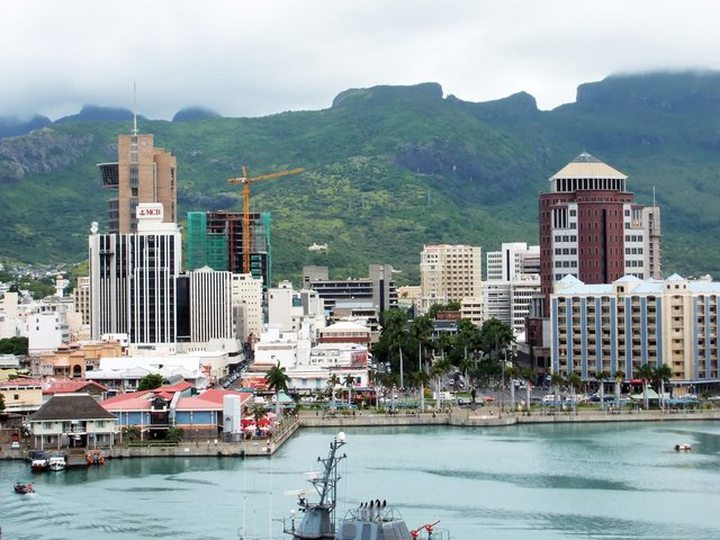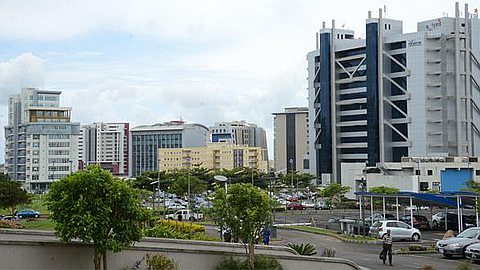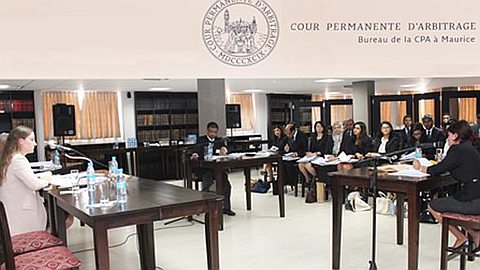Mauritius: Africa's Next Financial Services Hub?

The world’s largest reinsurance company, Munich Re, has a presence in Port Louis, Munich Mauritius Reinsurance Company (MMRC), which is a separate subsidiary to Munich Re of Africa, based in Johannesburg.
Mauritius has 26 096 global business companies and 905 global funds in the country. The financial services sector, which contributes 10.3% to a GDP of $10.49bn, employs 13 000 people.
Although this is far below the 111 700 employed in manufacturing (contributing 16.9% to GDP) and 47 400 employed in agro-culture (contributing 3.9% to GDP), the sector accounts for the third highest number of active occupation permits held by foreign nationals (12%). This is behind only the ICT and media industry (18%) and hospitality and airline industry (16%).
Building an international finance centre
“[Financial sector regulation] is quite flexible, it has got the right balance between being too heavy-handed and too light-handed. At the same time, it provides reasonably firm guidance to what firms can and cannot do,” said Dr Percy Mistry, speaking at a Financial Services Commission (FSC) event on January 15 this year.
Economic adviser and CEO of Oxford International Group, Dr Mistry was presenting his report titled, ‘Building Mauritius as a Competitive International Finance Centre – A roadmap for the Mauritian Financial Services Industry’.
“The two regulators of the financial services sector, namely the FSC and the Bank of Mauritius (BoM), are very well-respected and recognised. In fact, I believe that the regulators could offer a regulatory advisory service that will be welcomed by many international takers, especially in Africa,” Dr Mistry said.
One of the fastest-growing economies in sub-Saharan Africa and consistently ranked by the World Bank as the easiest country in which to do business in the region, Mauritius ranks 19th out of 189 global economies for starting a business, in the World Bank’s ‘Doing Business 2014’.
Trading across borders and investor protection rank 12th and paying taxes 13th overall. Although its tax treaty network is far more limited than South Africa’s (Mauritius holds treaties with 36 countries, versus South Africa’s 70), it is fast growing and Mauritius offers one of the most advantageous offshore jurisdictions for tax structuring in Africa.
South Africa should compete on skills
Head of investment funds at Werksmans Attorneys, Shayne Krige, told Moneyweb that it was unrealistic for South Africa to try and compete with Mauritius from a tax point of view. Instead, we should focus on the areas where we already have a competitive advantage. “As a small island nation, Mauritius has a smaller budget and needs less tax revenue, which means the government can afford to charge global companies less tax,” he said.
“The flipside of this is that Mauritius is a small island nation. It has limited infrastructure, schooling options, quality healthcare and service provision. This makes it more difficult to attract skilled professionals who have families, for example,” Krige said.
But this could change. “In time, Mauritius will no longer be satisfied to be only a conduit for investment and will leverage itself as a financial centre. Financial services is really what Mauritius is after; this was a conscious decision it took a couple of years ago, moving away from sugar and tourism,” he explained.
According to EY, amendments made in September 2013 to the Guide to Global Business confirm the Mauritian Government’s commitment to the financial services sector as one of the emerging pillars. In a Global Tax Alert, EY points out that companies holding a Category 1 Global Business Licence in Mauritius, (those that are resident in the country and subject to tax) will have to comply with any one of a number of criteria from January 1 2015.
Among these criteria is listed available office premises in the country; Mauritian-based assets of at least US$100 000; or Mauritian resident employees of an administrative or technical level being employed on a full-time basis.
That the government is looking to attract more companies is reflected in the recent Mon Trésor Business Cluster development, located at the doorstep of Mauritius’s SSR Airport. The cluster boasts a contemporary office park, warehousing and distribution facilities, as well as a Holiday Inn Airport Mauritius Hotel, opened in December 2013.
“South Africa should not make life too difficult for financial services providers (FSP). Instead, we should remain competitive in those sectors of our economy that are strongest and difficult to replicate,” Krige warned.
For example, the regulation of our securities exchanges and the strength or our auditing and reporting standards rank number one in the world, according to the World Economic Forum’s (WEF) Global Competitiveness Report 2012-2013. The soundness of our banks comes in second.
But if the business and regulatory environment becomes too difficult for South African FSPs, as many believe it is becoming in the wake of increasing prudential and market-conduct regulation, Mauritius may emerge the winner.
A few years ago in the UK, the British government started making serious noises about imposing higher taxes on the returns of private equity investors. This eventually led to an exodus of these individuals to Switzerland. Although a difficult decision initially, since it meant leaving friends and family in the UK, as soon as the first group broke the ice, communities were formed and international school capacity increased. It wasn’t long before others followed and Switzerland is now an investment management hub.
“South Africa could face a similar situation. It’s nice to live in Cape Town, but if financial sector regulation and tax treatment becomes too onerous, businesses and their skilled employees will reconsider,” Krige said. “For example, the tax risks facing investors who use South African investment managers makes it difficult for local providers to attract international business. This is not a problem in Mauritius.”





